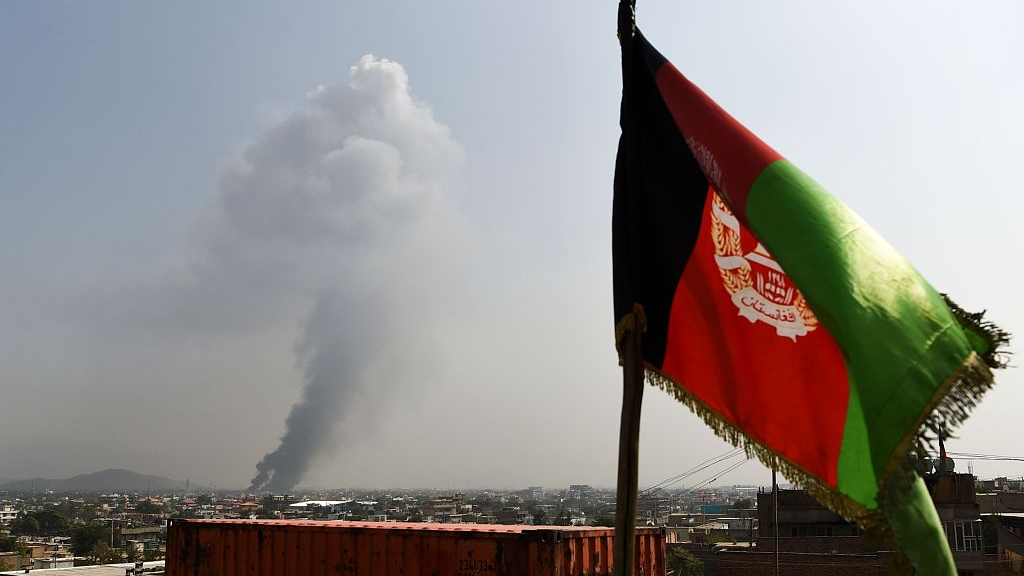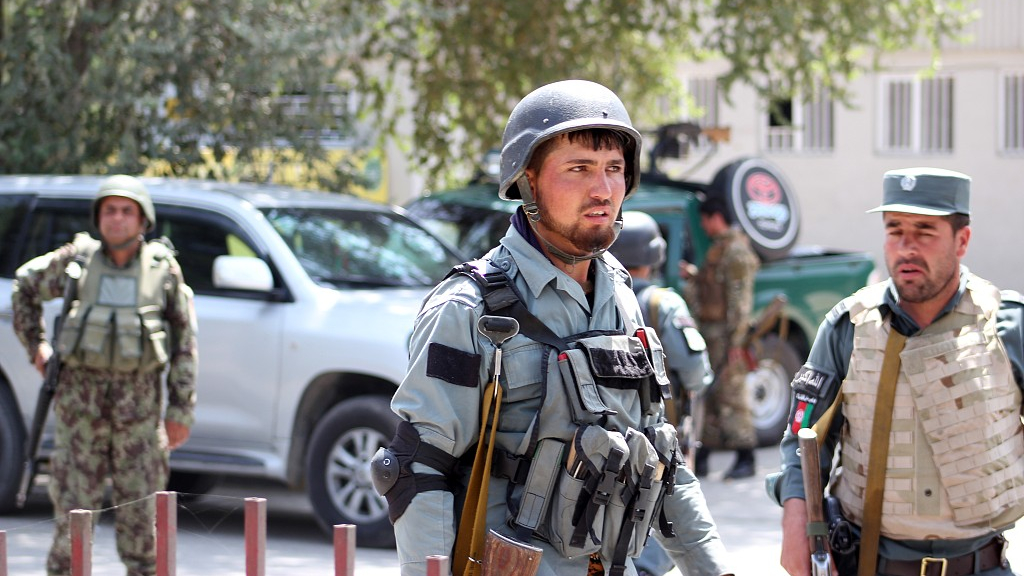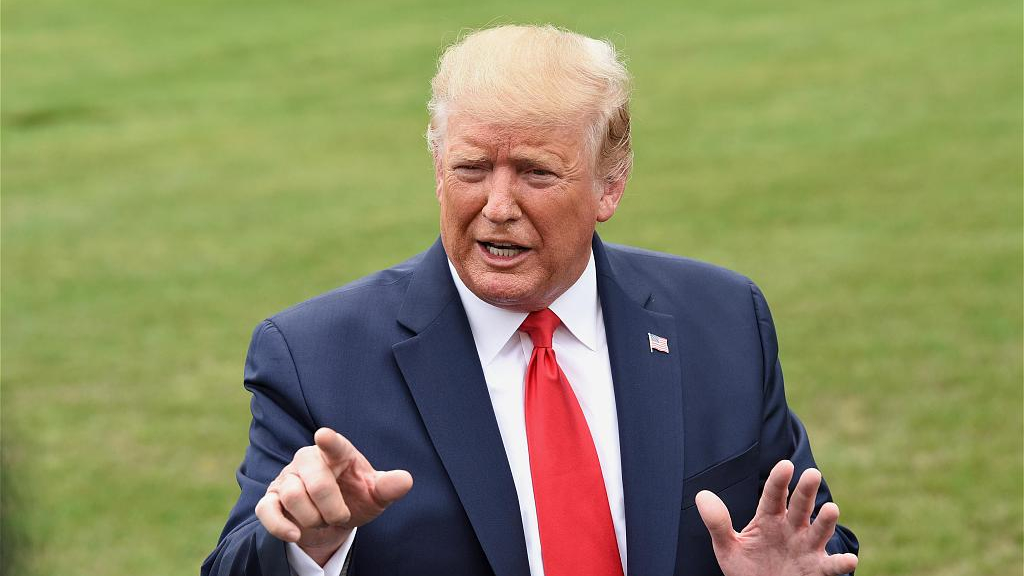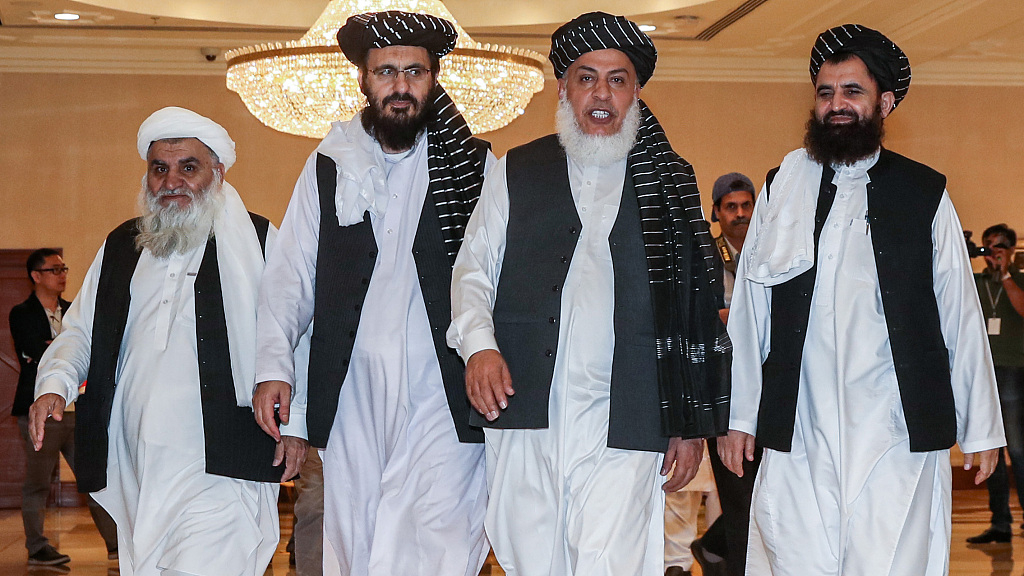

In the aftermath of U.S. President Donald Trump suddenly canceling peace talks with the Afghan Taliban, the United States starts memorial ceremonies for the 18th anniversary of the September 11 attacks.
On September 11, 2001, members of terror group al-Qaida hijacked four airplanes, crashing three of them into New York and Washington with nearly 3,000 people killed and others missing, mark it the single deadliest terrorist attack in human history.
Although 18 years have passed, the impact lingers, not only leaving an incurable scar on all Americans but also transformed U.S. priority to counter-terrorism, triggering the "global war on terrorism."
Refusing to hand over Osama Bin Laden, the head of al-Qaida, who was quickly identified as the man responsible, the U.S. invaded Afghanistan, marking the start of Afghanistan war against the Taliban.
Calls to end the war existed since 2001 and have been mounting in the past 18 years. Hopes of ending America's longest war rose when negotiators on both sides struck a draft peace deal last week, which could have lead to a drawdown in U.S. troops. However, on Saturday, Trump revealed that he had canceled an unprecedented meeting between the Taliban and himself at the Camp David presidential retreat outside Washington in retaliation for the alleged killing of a U.S. soldier by the Taliban in a Kabul bomb blast last week, deeming the talks "dead."

Smoke rises from the site of an attack after a massive explosion the night before near the Green Village in Kabul, Afghanistan, September 3, 2019. /VCG Photo
What stage?
Words of U.S. envoy Zalmay Khalilzad still reverberate, who confirmed that the U.S. had reached a deal "in principle" after nine rounds of negotiations with the Taliban. "We are at that stage," Khalizad told media a week ago, stating that the draft was pending final approval by the president.
But after attacks continued in Afghanistan and Trump's sudden suspension of the negotiation, questions rose over the draft deal. With few details disclosed, many doubted whether the U.S. has reached consensus with the Taliban on major issues.
Read more:
Is peace with the Taliban possible?
Afghan govt praises 'sincere efforts' as Trump calls off Taliban talks
Amin Saikal, a professor of Political Science at the Australian National University, believed that sticking points including a timetable for a complete U.S. withdrawal, a commitment from the Taliban to prevent hostile acts being launched against the U.S. from Afghan soil, direct negotiations between the Taliban and the Afghan government, which the Taliban regard as "illegitimate" and a "puppet," and a ceasefire across Afghanistan.
Among all the sticking points, ceasefire commitment seems the most prominent one, also the direct cause of Trump's decision, but Saikal suggested that the four points are interrelated.

Security forces stand guard after a massive suicide car bombing rocked Afghan capital Kabul, Afghanistan, September 5, 2019. /VCG Photo
Interrelated mess
The U.S. side takes ceasefire as a pre-condition for the continuing of the negotiations while the Taliban insisted it will not commit to anything until the U.S. announces a withdrawal timeline, demanding the U.S. to completely withdraw the roughly 14,000 U.S. troops stationed in Afghanistan in order to "end the occupation" in the country.
"If they cannot agree to a ceasefire during these very important peace talks ... then they probably don't have the power to negotiate a meaningful agreement anyway," Trump said Saturday on Twitter, referring to an Taliban-plotted attack in Kabul that killed an American soldier and 11 other people.
U.S. Secretary of State Pompeo also reiterated on Sunday the two conditions for withdrawal, namely the ending of violence and Taliban's commitment to expel foreign militant groups like al-Qaida.
"We're not going to withdraw our forces without making sure we achieve President Trump's twin objectives," said Pompeo in an interview with NBC.

U.S. President Donald Trump says U.S. peace talks with the Taliban are "dead," Washington, DC, U.S.A., September 9, 2019. /VCG Photo
The Taliban, on the other hand, still denied being involved with al-Qaida in the 9/11 attacks, as Taliban's top spokesperson Suhail Shaheen said in an interview with CBS News in late August.
The peace talks excluded the Afghanistan government by request from the Taliban, which deems Ashraf Ghani's administration as "illegal" despite of the repeated proposal of internal negotiations from the government.
Shortly after Trump's cancellation of peace talks, Ghani's office made a statement, claiming real peace was only possible when the Taliban stopped their violence, once again urging the militant group to have direct talks with the government.
After learning of Trump's decision, the Taliban warned of "more losses to the U.S." with no further signs of compromise.
Although both the U.S. and the Taliban claimed the door to resuming negotiations remains open, new talks are not likely to happen for several months. Analysts say the Taliban may launch attacks in the country so as to force the U.S. back to the negotiation table.

Mohammad Nabi Omari (C-L), Taliban negotiator Abbas Stanikzai (C-R), and former Taliban intelligence deputy Mawlawi Abdul Haq Wasiq (R) walk with another Taliban member during the second day of the Intra Afghan Dialogue talks in Doha, Qatar, July 8, 2019. /VCG Photo
Upcoming election, upcoming violence?
The on-hold peace talks come at a pivotal time ahead of the Afghanistan elections to be held on September 28. With Taliban's warning of more violence, the prospect of the election seems gloomy.
The 2014 presidential election ended up with months of turmoil. One of the candidates, now Chief Executive Abdullah Abdullah was accused of "blatant fraud" with the UN intervening as a mediator. While last year's parliamentary elections, Ghani fired the Independent Electoral Commission.
With elections delayed twice, coupled with stagnant peace talks, this year's elections are much more complicated.
As the front runner, Ghani insisted to hold the election on time "at any cost" but considering Taliban's boycott of the vote and warning of targeting polling stations, analysts worry that the coming election may further fuel the already escalated situation.
Zhao Gancheng, senior fellow of Shanghai Institutes for International Studies suggested the coming election is an important indication of the situation in Afghanistan.
"If the government transition goes on smoothly without bloodshed, it means that Afghan peace process is on the right track, otherwise, the prospect of Afghanistan is still unpredictable," he said.
(Cover: 7,000 American flags displayed outside the Long Center on Memorial Day in Austin, Texas, May 27, 2013. /VCG Photo)

Copyright © 2018 CGTN. Beijing ICP prepared NO.16065310-3
Copyright © 2018 CGTN. Beijing ICP prepared NO.16065310-3